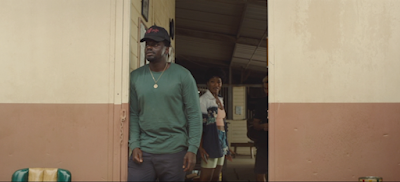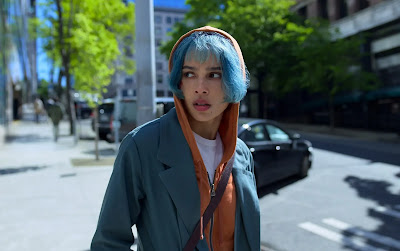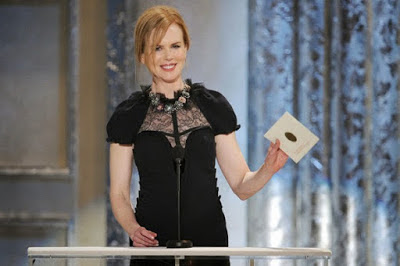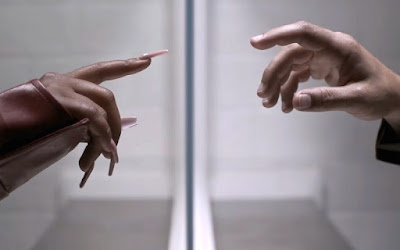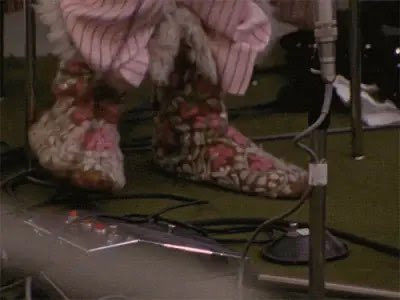The more movies you watch, the more you realize the Academy Awards are merely a drop in the bucket of film. Even so, I have always loved the Oscars. Because films are movies too and movies need a little glitz, glamour, some searchlights, and giant self-regard. Yet, as the 97th Academy Awards approach, I struggle to remember in the 30-plus years that I have been watching them when they have felt so small, so unglamorous, so inessential. It is not just the wrenching fallout of the Los Angeles wildfires, nor the pall cast by America’s Useful-Idiot-in-chief casting our lot, apparently, with the new Axis of Evil in addition to all the other acts of virulent stupidity. No, it’s the movie themselves. It was a year so uninspiring that for the third time in the last four, I was not even compelled to compile a Top 10 list, underlined in the underwhelming collection of Oscar nominees that not only failed to enter the zeitgeist but seem to suggest, as Matthew Gasda did for his Substack, the Academy Awards have been gamed.
Now that is not entirely a new phenomenon. Before optimization became the trendy buzzword of the tech bros who would change your life (while stealing its pertinent details), studios were always seeking to game the awards system. Mark Harris’s book Pictures at a Revolution is partly about how “Dr. Doolittle” luncheoned its way to a Best Picture nod in 1967 while Miramax optimized its own kind of Oscar movie in the 90s and the aughts and then relentlessly, viciously promoted them. Many of those Miramax pictures were, in fact, just outgrowths of what critic Dwight McDonald once deemed Midcult. In his piece, Gasda quotes McDonald explaining Midcult: “the formula, the built-in reaction, the lack of any standard except popularity [covered] with a cultural fig leaf.” In other words, rather than focus on making a quality film that might ultimately appeal to the Academy, you reverse engineer it by working backwards from the Academy’s taste. The bigger problem, however, is that now this suboptimal approach to art is threatening to become the American movie industry’s prevailing method.
In a comprehensive piece for N+1 Will Tavlin guides us through the streaming titan Netflix’s entire history from a mail rental company chewing up Blockbuster to a vertically integrated behemoth that is reshaping, if not ruining, the film industry by putting the cart before the horse, as they say, and working backwards to create movies by harnessing the data of viewers to then turn around and meet their expectations rather than seek to surprise of subvert them. Movies are no longer the end, as Tavlin writes, they are the means to the end, the end being subscribers. Netflix acquires and then keeps them by relentlessly churning out content, ensuring there is always something else on; you can log off, but you can never leave. They produce this content in-house, a la the old studio system but without a genuine commitment to craft, evoking a modern variation of “The Producers” in so much as a rushed, shoddy production can be more beneficial than a thoughtful, solidly made one. Their watered-down movies might as well be television, blurring the line once and for all between the two, an art form intended for the big screen reduced to what may as well be reruns of “Caroline in the City” on a Tuesday afternoon.
In an interview on Defector’s flagship podcast The Distraction, Tavlin was asked by host Drew Magary if he saw any way out of this predicament. Tavlin cited federal intervention as potentially the best remedy, as it was in the 1940s when the Paramount decrees negated the big studios’ own vertical integration. He seemed fatalistic about this proposition, though, and it’s hard not to understand why, what with an American government currently being run by a plainly stupid philistine who seems determined in his way to recreate Hollywood in the image of the People’s Republic of North Korea. His maniac second-in-command, meanwhile, is upending government agencies in part by firing scores of people and deploying A.I. software instead and it’s easy to imagine a near future where Netflix does the same, cutting out the middleman between data collecting and artificial intelligence entirely. Distraction co-host David Roth took hope that the janky product this type of method is already eliciting might also elicit pushback, an outcry for a true human handprint. Me, I don’t know, my faith in people has wilted significantly the last few years.
Still, I did not want to end on such a hopeless note. And so, even if I felt just as unmotivated to compile a traditional Random Awards list as I did a Top 10, I had, nevertheless, jotted down a few Random Awards throughout the year that are vintage in quality and did not deserve to sit in the drafts folder forever. There is quality out there, somewhere. Therefore, a truncated Random Awards.
Random Awards 2024 (truncated ed.)
 |
| Her eminence Nicole Kidman appearing live via satellite from her couch to present the truncated edition of Cinema Romantico’s Random Awards. |
Line Reading of the Year: “Hoo boy, Lousy Carter, what the fuck?” - Olivia Thirlby, Lousy Carter. In her immaculate drawing-a-blank deadpan and real emphasis of that concluding question mark, Thirlby hysterically encapsulates just what her character is doing in this moment, delivering the eulogy for an eponymous character who never quite believed in the worth of his own existence.
Best Use of Wikipedia: Rebel Ridge. If using a search engine is typically a lazy storytelling device, in this Netflix (irony!) action-drama, a bunch of small-town southern cops only realizing a few moments too late what they are up against upon consulting everybody’s favorite free online encyclopedia not only turns a reveal into a hysterical punchline but a hysterical evocation of their own laziness for failing to look into things.
Best Product Placement: Green and Red M&Ms®, Christmas Eve at Miller’s Point. A movie not so much about nostalgia as imbuing nostalgia through aesthetic, “Christmas Eve at Miller’s Point” creates a collage of emotions and feelings and sensory memories more than it unspools a narrative, like a slo-mo shot of so many holiday-themed chocolate confectionaries being poured into a bowl. As they were, I felt myself pulverized by flashes of holiday memory, of a gold-colored Anderson Erickson eggnog carton, of the blue Royal Dansk Danish butter cookie tin my grandmother would bring each December, of Holiday Greetings from Budweiser, in one breath laying bare how Christmas is inextricably intertwined with consumerism.
Best Laugh: Nicole Kidman, Babygirl. As I noted in my review, when another character humorously suggests she always assumed that Kidman’s character was raised by wolves or robots, Kidman’s laugh in response sounds robotic, a real live human being chortling in A.I. It’s a vocally fried chuckle on the level of Meredith Marks, which I understand might not mean anything to most of you but trust me, in the space of that laugh, Nicole touches the face of God.
The Ruffalo (most unsung performance in a movie this year): Hailey Gates, Challengers. As Helen, with whom lothario Patrick (Josh O’Connor) goes on a blind date solely in the hopes of getting a place to sleep for the night, Gates’s character is there to emphasize Patrick’s cruelty and provide a counterweight when the woman he really loves, Tashi (Zendaya), unexpectedly appears. But Gates makes all that count so much more by turning her character into a living, breathing human by effusing an insecurity that borders on tragic. It’s truly a supporting turn and the true supporting performance of the year.
Best Metaphor: American Star, American Star. Granted, the 1940 ocean liner SS America that wrecked off the coast of Fuerteventura in the Canary Islands in 1994 and was just lying there to be gaped at for three decades before finally disintegrating and collapsing into the sea last year, might be an obvious metaphor for a hitman (Ian McShane) aging out of that life and life altogether, an anvil dropped on the head more than merely on the nose. And yet, in the conveyance of this metaphor, and the grave resignation with which McShane receives it, that gargantuan nature is itself an apt metaphor for how it made me feel when at movie’s close, the ocean liner just...disappears. Is that the world, I wondered, passing me by? (Don’t answer that.)










.jpg)
